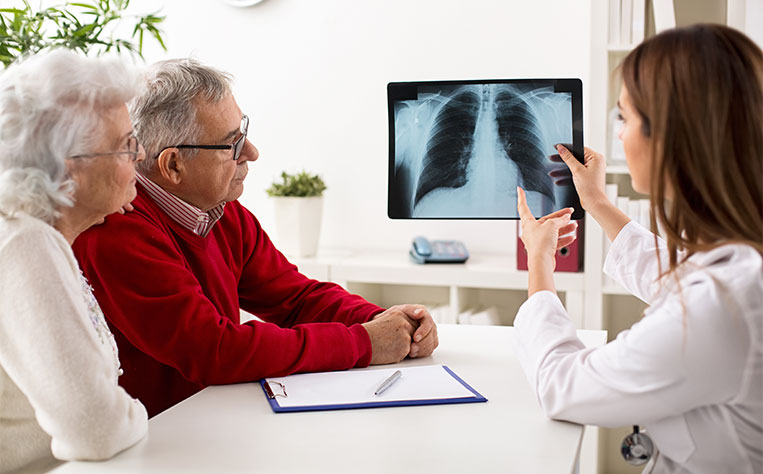Types and Stages of Lung Cancer
Lung cancer occurs when malignant cells of the lung multiply abnormally and start destroying nearby tissues. As more abnormal cells develop, they may form a mass or tumor. There are two main types of lung cancer—Non-small cell lung cancer and small cell lung cancer.
Types of lung cancer
- Non-small cell lung cancer
This is the most common type of lung cancer and accounts for about 80% to 85% of all lung cancer cases. - Small cell lung cancer
This type of lung cancer is also known as oat cell cancer and accounts for 10-15% of lung cancer cases.
Stage and grade of lung cancer
The stage of lung cancer is determined by the size of the tumor, its location in the body, and how far it has spread.

- Stage 0
This is the earliest stage of lung cancer and is also known as “carcinoma in situ.” Here, the tumor is minute and has not spread in the lungs or deeper into the tissues. - Stage 1
The tumor is not more than 4cm in diameter and has not spread outside of the lung or to any lymph nodes. This is the early stage where if cancer is spotted, it can be cured. - Stage 2
The tumor can be of any size, and cancer may have spread to the nearby lymph nodes, other parts of the lungs, or the organs and tissues outside the lungs.
The cancerous tumor can be of any size and may spread to the lymph nodes. Cancer has mostly spread to other parts of the lung, including the airways.
This stage is characterized by a tumor of any size. Additionally, cancer has mostly spread to the lymph nodes and could have also reached the other lung or the pleura. The cancerous cells might have even reached other body parts like the liver, bones, or the brain.
Disclaimer:
The content of the articles discussing symptoms, treatments, health conditions, and side effects is solely intended for informational purposes. It is imperative that readers do not interpret the information provided on the website as professional advice. Readers are requested to use their discretion and refrain from treating the suggestions or opinions provided by the writers and editors as medical advice. It is important to seek the help of licensed and expert healthcare professionals when necessary.

